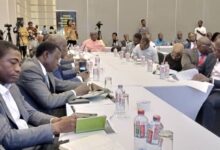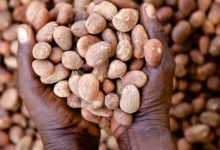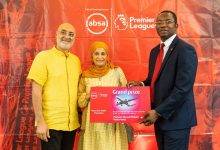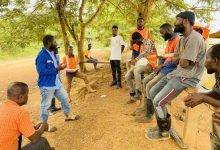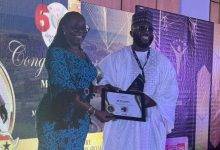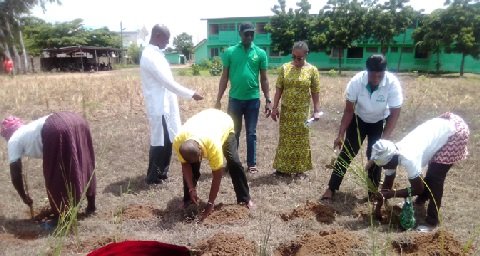
The President of the Millar Open University, Professor David Millar, has indicated that grass production has the greatest potentials of not only greening the environment but growing the economies of countries.
Professor Millar made the observation when members of the Greening Northern Ghana (GNG), an environmental voluntary organisation, paid a working visit to the campus of the university on Friday to participate in a grass planting exercise.
Addressing the group after the planting exercise, Professor Millar exhibited how the university was able to manufacture charcoal using grasses as raw materials to the amazement of the group.
Prof. Millar who is also the founding member of GNG, explained further that the natural resource could play multipurpose functions, and noted that apart from grasses contributing to curbing environmental degradation, they could be used for the production of charcoal, toilet rolls, papers and fodder for feeding livestock, among others.
He stated that it was very regrettable that in Ghana grasses are seen as nuisance, and cited other countries like Ethiopia, Australia and Rwanda where grasses are put into good use and generating income for individuals and developing the economy of those countries.
“Also apart from food and medicine grasses could be used to manufacture paper bags to deal with the canker of plastic menace in the country,” he disclosed.
Professor Millar intimated that the five regions of the north have the comparative advantage and when supported to grow grasses into large scale farming could grow the area into a green economy and also help create employment opportunities to help curb the spate of rural urban migration.
The President of the university mentioned that out of the 15 Municipal and District Assemblies (MDAs) in the Upper East Region, it was only the Kassena-Nankana Municipal Assembly which has decided to adopt grass production under the One District One Factory policy.
He therefore proposed to government to consider grass production in its flagship programme “One District One Factory.”
Professor Millar who expressed worry about the challenges many women in the region who are into basket weaving had to travel far distances to the southern parts of the country such as Brong-Ahafo Region to look for straw as raw materials for weaving, stated that the challenges could be addressed if all the MDAs support in the growth of the vertebral grasses.
The Professor indicated that his university, which is also known as Millar Institute for Trans-disciplinary and Development Studies, had sent proposals to the then Savannah Accelerated Development Authority and the Northern Development Authority now, on the need to grow a grass economy to accelerate sustainable development, create jobs and improve on livelihoods
Assistant Director of Administration at the Upper East Regional Coordinating Council, Madam Yvonne Wonchua, advocated that authorities make greening a requirement in the provision of building permits.
It would be recalled that in March this year, the Upper East Regional Minister, Madam Paulina Patience Abayage, launched the environmental NGO in Bolgatanga with the aim of greening the five regions-Northern, Savannah, North East, Upper East and Upper West regions to protect water bodies and curb other environmental challenges.
FROM SAMUEL AKAPULE, BOLGATANGA

